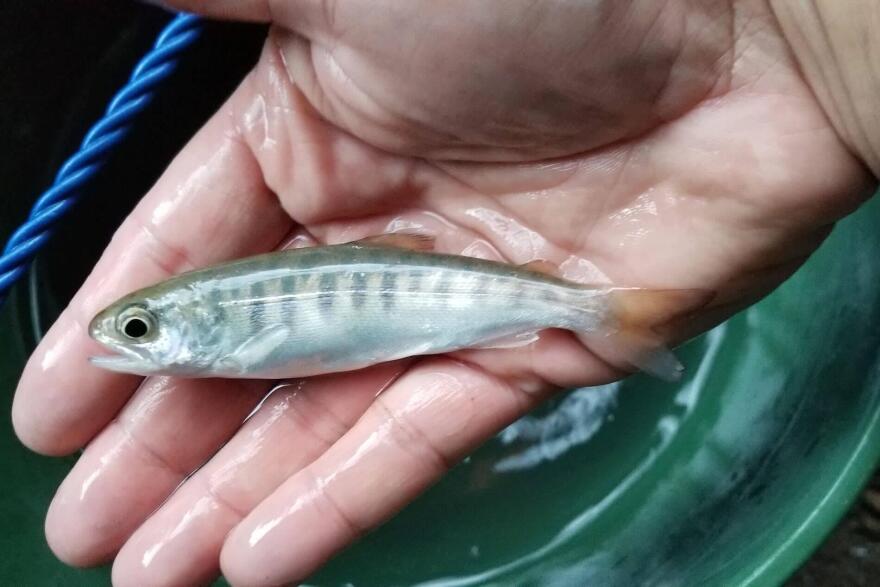The Scott River is home to one of the last remaining wild populations of coho salmon in California. Juvenile salmon hatch and are reared in the Scott, before swimming into the Klamath River and out to the ocean.
But according to the Karuk Tribe and the nonprofit Environmental Law Foundation, extreme drought and commercial water use are drying up the river.
They’re asking the California Water Resources Control Board to set a minimum flow for the Scott. Doing that would involve regulating hundreds of nearby agricultural wells.

“The majority of agricultural water use is groundwater and much of that groundwater is directly tied to the river, so that when pumping goes up, the river goes down,” says Nat Kane, executive director of the ELF.
According to the petition for emergency rulemaking, last year’s drought and water pumping temporarily stranded salmon below spawning areas until a fall rain allowed them to swim upstream. The Tribe and ELF are hoping to keep water in the river before fish migrate this fall.
A spokesperson for the water board did not respond to an interview request.
Kane says Governor Newsom’s recent drought proclamation gives the state water board authority to take this step, which would impact senior water right holders.
In June, the state water board restricted surface water diversions from the Scott affecting junior water right holders.
“We’re not trying to end agriculture in the Scott Valley,” Kane says. “But we’re trying to find a way that agriculture and these fish species can coexist, because right now the operation of this system is out of balance.”



